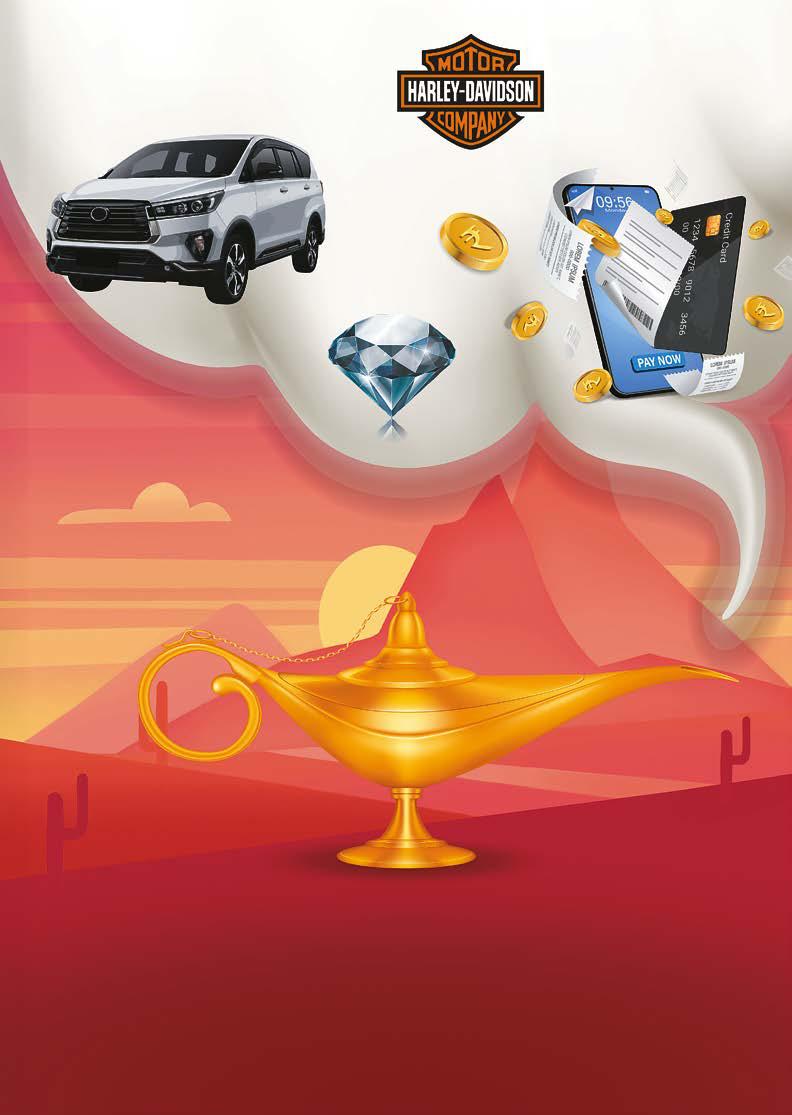ILLUSIONS Of GROWTH

Priyam Veer Singh, a worker in a restaurant in south Delhi, recently bought a smartphone worth ₹25,000. Not only that, he gifted his wife one too. Like Priyam, Axat Bharadwaj, a Delhi-based techie, too used his credit card to buy a smartphone that cost ₹50,000.
Proliferation of credit cards, easy EMI options, cash back and other rewards are luring the young into splurging on premium products. The Rise of Affluent India, a recent report by investment bank Goldman Sachs, says the consumption of premium goods in India has seen a significant rise in recent years. This trend has been labelled the “premiumisation of the Indian economy” by analysts.
According to the report, premium brands have grown vis-a-vis mass brands. While sales of Royal Enfields have gone north, mass motorcycle brands have shrunk by nearly 20% compared to pre-Covid levels. Similarly, sports-utility vehicle sales have been higher than overall car sales.
Goldman Sachs says that between 2018–19 and 2022–23, sales of Bata, an affordable footwear brand, grew close to 20% while Metro, which focuses on the premium segment, saw its sales jump by over 70% in the same period. Brands such as Titan in jewellery, Apollo Hospitals in health care, MakeMyTrip in travel and Phoenix Mills in retail, which cater to the top-end of consumer pyramid, recorded strong CAGR—between 12% and 18%—in revenue between financial years 2019 and 2023.
Seen by these metrics, it would seem that the Indian economy is trotting along at a good clip with a growing cohort of affluent Indians. But a deeper dive into the Goldman Sachs report throws up some disturbing numbers. There are more reasons to worry than celebrate.
Esta historia es de la edición March 2024 de Outlook Business.
Comience su prueba gratuita de Magzter GOLD de 7 días para acceder a miles de historias premium seleccionadas y a más de 9,500 revistas y periódicos.
Ya eres suscriptor ? Conectar
Esta historia es de la edición March 2024 de Outlook Business.
Comience su prueba gratuita de Magzter GOLD de 7 días para acceder a miles de historias premium seleccionadas y a más de 9,500 revistas y periódicos.
Ya eres suscriptor? Conectar
Driving Towards Sustainable Mobility
As India transitions into the era of cleaner and more sustainable mobility solutions, it has become imperative for automakers to do more than just electrify their line-up.

A Historic Blunder
A ceasefire has been announced post-Operation Sindoor that destroyed nine terrorist bases in Pakistan and Pakistan-occupied Kashmir (PoK), its air defence infrastructure and other military bases.

‘India serves as a testing ground for scalable solutions’
Swetha Ramdas, principal, APAC sustainability, Amazon tells Sudipto Dey in an email interview that the company is delivering orders with reduced or no packaging in over 300 cities in India. Edited excerpts

Third Time's A Charm?
As payments and lending lose their sheen, fintechs are betting on broking and wealth management as their next engines of growth

NSIC has been imparting skill training amongst aspiring entrepreneurs
National Small Industries Corporation’s CMD Subhransu Sekhar Acharya tells Outlook Business how the organisation is helping MSMEs grow. Edited excerpts:

War will affect India's attraction as an FDI destination
Ajit Ranade, senior fellow at Pune International Centre, tells Pushpita Dey that it is in India's interes to contain border conflicts. Edited excerpts

Building Blocks of a Circular Economy
Across our planet, the consumption of finite natural resources is placing a large strain on the environment, with changing geopolitical dynamics adding new dimensions to the challenge.

Mankind Gets A Booster Dose
The pharma company under Sheetal Arora is looking to increase its footprint on foreign soil by leveraging its recent acquisitions and increasing investments in R&D

Our Tier-II and Tier-III cities present youthful demographics and cost-efficient operations
Ekroop Caur, secretary, Department of Electronics, Government of Karnataka in an email interview with Shruti Tripathi discusses the state's vision to strengthen the digital ecosystem. Edited excerpts:

Taste of Tradition
An iconic sweet shop from Pune is defying the three-generation rule to scale up the business and take its products global
